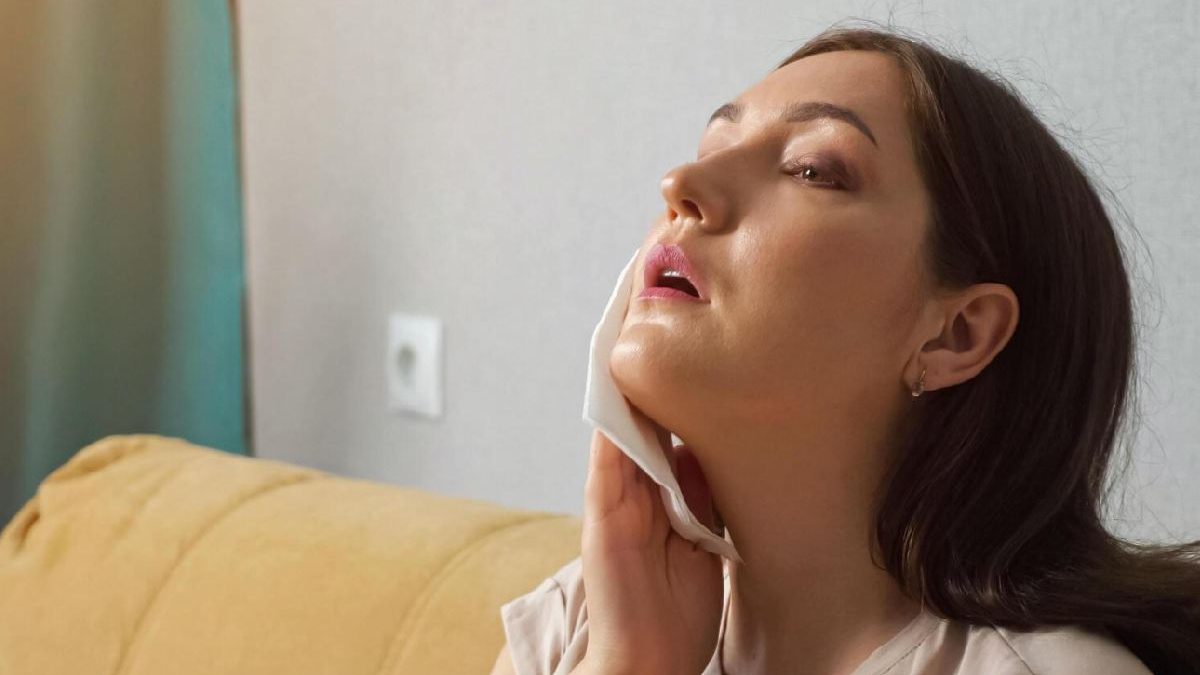Clammy skin: Clammy skin denotes wet or sweaty skin. Sweating is your body’s standard reply to overheating. The moisture of sweat has a refrigeration effect on your skin.
Changes in your form from physical exertion or dangerous heat can trigger your sweat glands and cause your skin to become slimy. It is normal. However, clammy skin that happens for no apparent reason can signify a severe medical condition.
Table of Contents
What causes clammy skin?
Clammy skin that isn’t an outcome of physical exertion or a reaction to hot either can be a symptom of a more severe medical condition. Don’t ignore this indication. You should constantly report it to your doctor. To dismiss clammy skin, the underlying cause must be exposed and treated.
Common causes
Clammy skin can be a symptom of several situations, such as a kidney infection or the flu. Other common reasons for clammy membrane include:
- Panic attacks
- Low blood sugar
- Hyperhidrosis
- Menopause
- Alcohol withdrawal syndrome
More serious conditions
Slimy skin can also be a symptom associated with a heart attack. A heart outbreak occurs when a blood clot lumps one of your coronary arteries. Coronary arteries take blood to your heart muscle. If your heart strength doesn’t get enough blood or oxygen, your heart muscle cells will die, and your heart won’t work the way it must. Call 911 or go to a spare room if you believe you’re consuming a heart attack.
Shock
Another possible cause of slimy skin is a shock. Shock is commonly supposed to as the response to emotional distress or a short fright in response to a traumatic event. However, in medical terms, it happens when you don’t have enough blood circulating in your body. Shock is your body’s response to a sudden drop in blood pressure.
A few possible causes of shock include:
Unrestrained bleeding from a wound/injury
A severe burn covering a significant area of the body
A spinal injury
Clammy skin is one of the mutual symptoms of shock. Shock can be a fatal condition if it remains not treated immediately. Call 911 or go to an emergency apartment if you believe you’re going into shock.
How is clammy skin treated?
Handling clammy skin depends on its underlying cause. Heat collapse and dehydration are treated by rehydrating with liquids using an intravenous (IV) line. It may be essential to stay in a hospital during your treatment if you have heat exhaustion and signs of shock.
You’ll need immediate therapeutic attention if a life-threatening condition, such as shock or a heart attack, is causation your [clammy skin].
Most cases of [clammy skin] do not need medical attention. However, suppose any additional symptoms do not escort damp skin. In that case, it’s often just a matter of resting, moving someplace cool, drinking water or taking a wash to resolve the symptoms of clammy skin.
Conclusion
For a severe allergic reaction or anaphylaxis. You’ll essential a medication called epinephrine to offset your sensitive response. Epinephrine is a kind of adrenaline that stops your body’s answer to the allergen causing your symptoms.
Clammy skin caused by hormonal imbalances from menopause or andropause (male menopause) can remain treated with replacement hormone medication. Unfortunately, this medication is only available by prescription.

